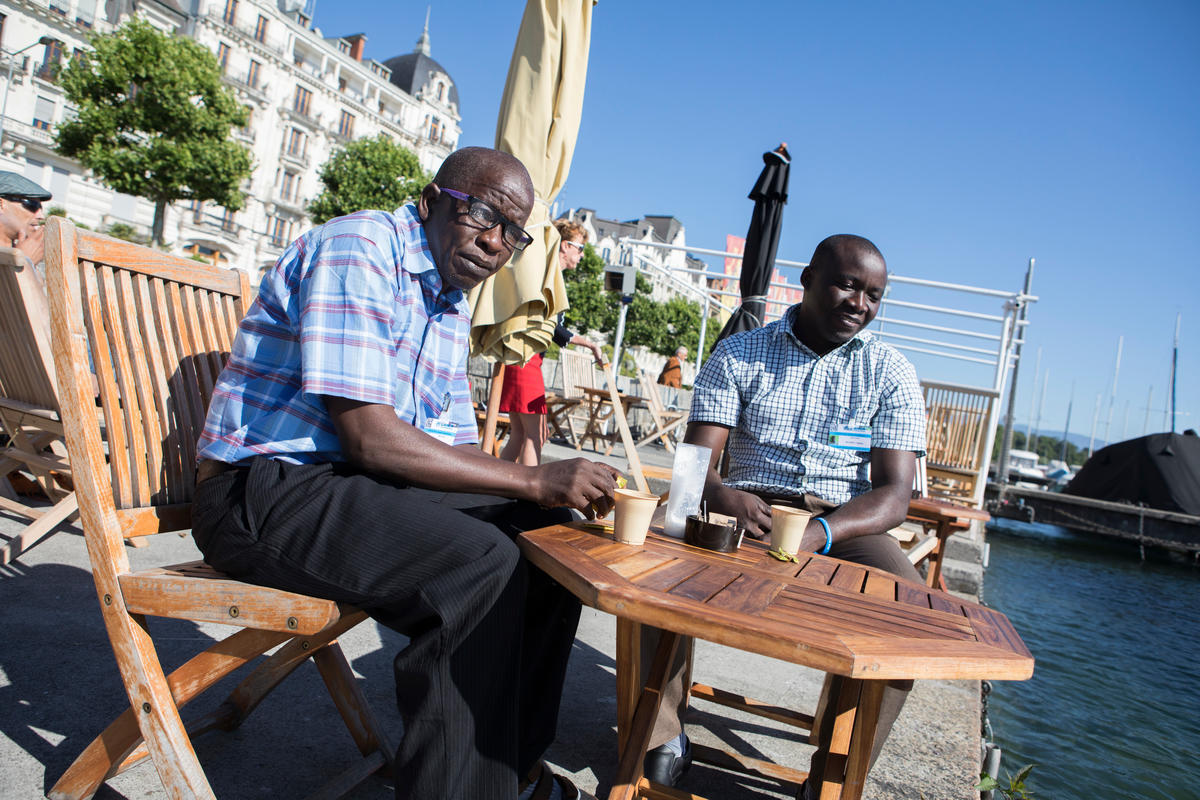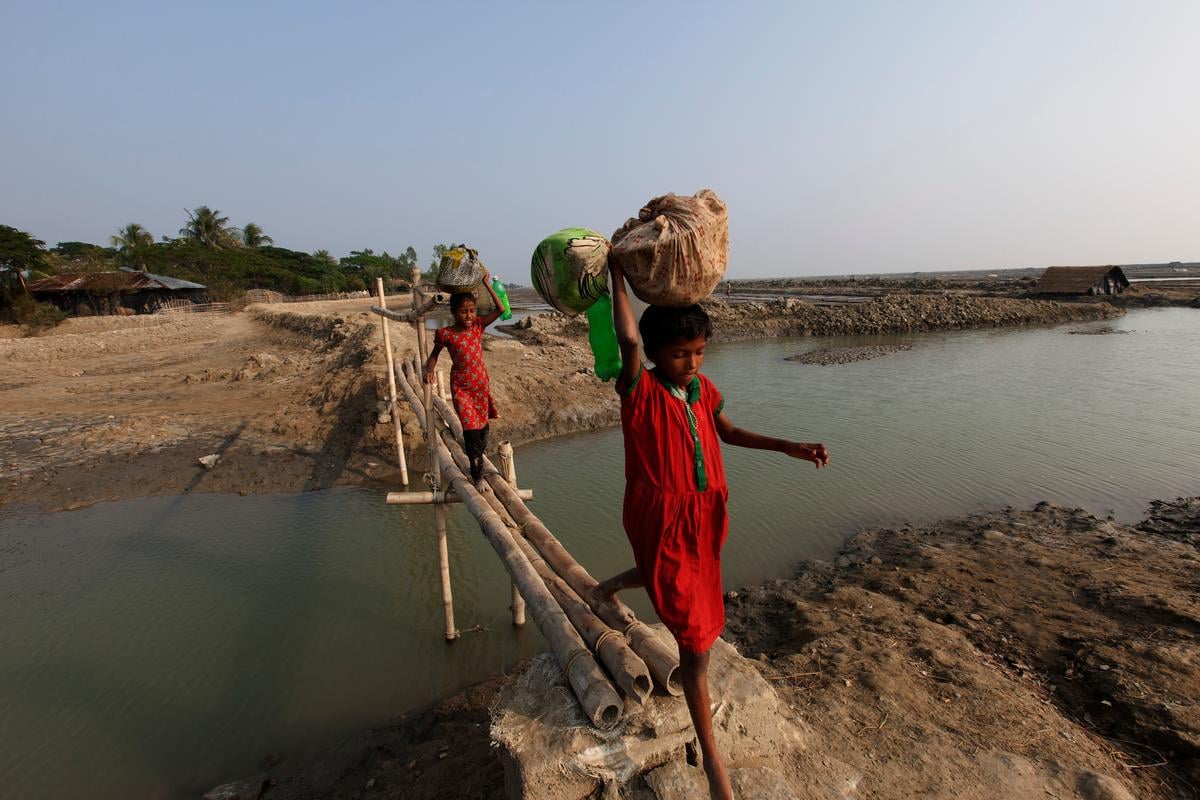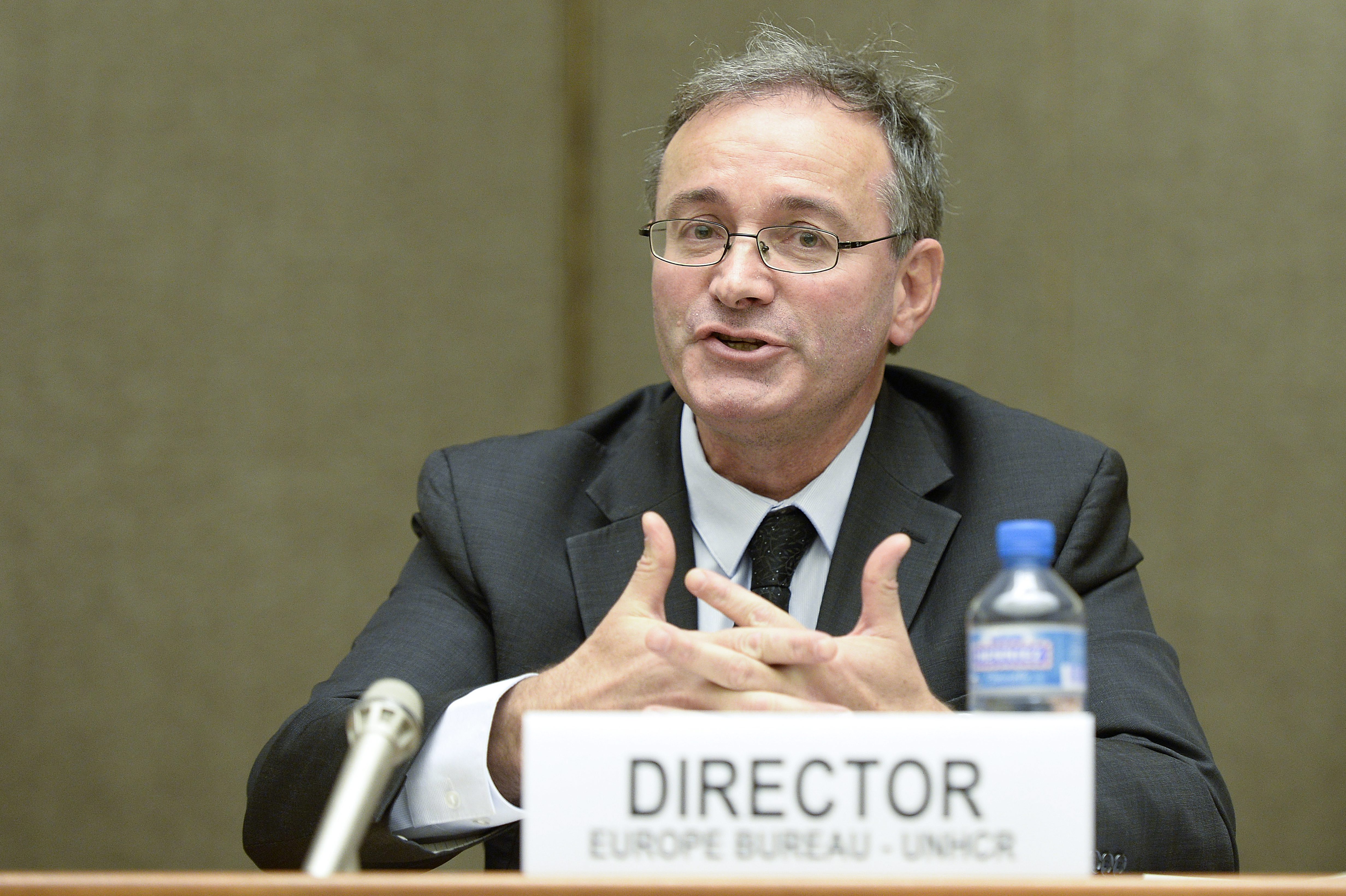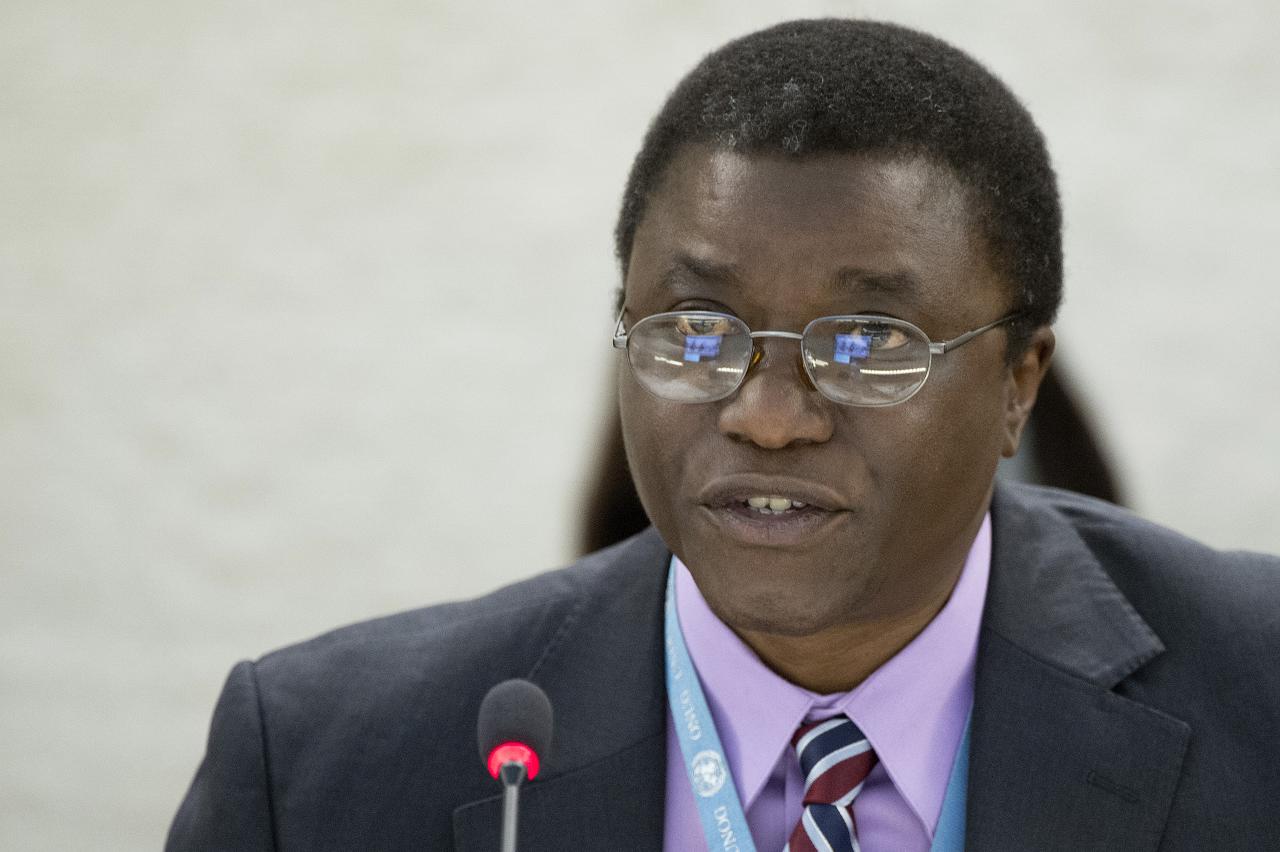Q&A: Refugees have a friend in Argentina's top diplomat
Q&A: Refugees have a friend in Argentina's top diplomat

BUENOS AIRES, Argentina, October 24 (UNHCR) - Argentinian Foreign Minister Jorge Taiana has spent most of his life fighting for human rights. He paid for his convictions during the dark years of military rule, when he spent seven harsh years - 1975-1982 - in jail. Taiana, a member of the Justicialist Party, became Argentina's top diplomat in 2005 and the country has become one of the world's few resettlement destinations under his watch. The 58-year-old father of three talked earlier this year with UNHCR Associate Public Information Officer Carolina Podestá. Excerpts from the interview:
Is there any refugee situation which particularly draws your attention?
Every conflict has the potential to have worldwide repercussions. We may feel that what happens in [Sudan's] Darfur [region] does not directly affect our country's security, but it certainly does influence deeply how we look at the continuing human tragedy there - and how we act.
Obviously conflicts in the region have more immediate consequences for us, and that is why we pay more attention to what is happening in Colombia. Our aim is to improve the situation of refugees and to carry out actions of solidarity under the framework of the [2004] Mexico Plan of Action [to safeguard refugees in Latin America]. Since 2005, for instance, we have joined the regional Plan of Solidarity for the Resettlement of Refugees.
How are refugee issues dealt with in the region?
The full protection of human beings is the cornerstone of our policies and within that framework we must include coordinated action with our partners in MERCOSUR [a regional common market gathering full members Argentina, Brazil, Paraguay and Uruguay with associate members Bolivia, Chile, Colombia, Ecuador, Peru and Venezuela]. We want to fuel debate on the issue at the sub-regional level. In late March, for example, we held a seminar on refugees during the meeting of the Forum on Migration and Human Rights.
In the near future, we would like to share common eligibility standards so that we can move forward in the asylum chapter towards a perspective that aims to promote enjoyment of the full range of human rights.
Latin America has had an unstable past. Can the region now provide durable solutions for refugees?
We are convinced that it is so. It was said for many decades that our region was one of the most peaceful in the world because of low levels of conflicts between nation states, but often people forgot to mention that we were also one of the most politically unstable regions in the world. This led to much grief and forced many to leave their countries.
From the experience of exile, persecution and hardship that we lived through during the dictatorships [of the 1970s and 1980s], we have gained probably one of our most important learning experiences: generosity towards people in need of protection. It is very noticeable that the approval of new regional documents to strengthen refugee protection never requires much time or debate. What takes years in developed countries is a much shorter process in Latin America. This is a sign of the overwhelming consensus we share on the issue.
The challenge is to maintain our human approach when other countries that have always been models of protection are closing their doors. It is painful to witness the creators of the 1951 [Refugee] Convention stumbling in front of the illusory dilemma of state security versus asylum. We believe there is no such dilemma and that the safer states are the ones who protect their citizens.
What are the advantages and disadvantages for a refugee settling in a developing country like Argentina?
The best answer to this question should come from refugees living in Argentina. Nobody will say they live in a paradise, but many will agree they received a generous welcome and the chance of a new life far from tragedy. We are pleased they like being with us. We accept them as they are - under our constitution they are equal to every other citizen.
The education sector - private and public - is open to them at all levels, as is the health system. How many developed countries can say this? How many developed countries grant full citizenship after only two years in the country? How many developed countries issue identity cards without mention of the status of refugees?
What would you tell a refugee about to arrive in the country?
We would like to tell refugees that we are an open country for those in need of protection and that, regardless of the cause of their persecution, they can be certain that the situation [which forced them to flee their homeland] will not be repeated here.









